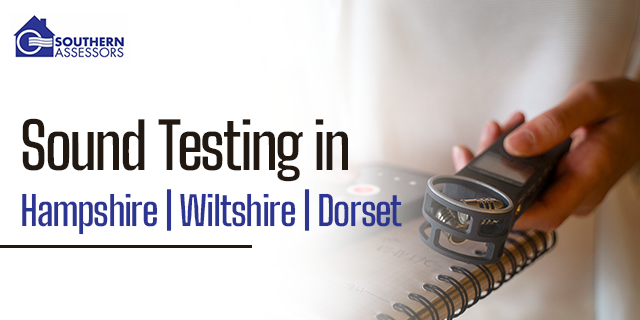Whether you’re building a new property or converting an existing one, sound insulation testing plays a critical role in ensuring your building meets current Building Regulations. It’s not just about ticking a compliance box—it’s about creating comfortable, private, and peaceful environments for people to live and work in. If you’re in Hampshire, Wiltshire, or Dorset, this blog will guide you through the essentials of sound testing and what makes it such a vital step in your construction or conversion project.
What Is Sound Testing All About?
In its simplest terms, sound insulation testing determines the ability of a building to prevent the passage of airborne and impact sound between adjoining rooms. These tests are required by the Building Regulations Approved Document E in England and Wales. The main aim is to ensure that new constructions or conversions offer adequate sound isolation between the dwellings.
Whether it is the sound of footsteps from the flat above or voices coming from next door, no one wants to hear what is going on next door. That is why sound insulation testing in Hampshire, Wiltshire, and Dorset is important.
Why It’s Important for Your Project
Some people may think that insulation is only related to heat, but noise insulation is equally important. The lack of soundproofing can cause inconvenience, conflicts, and even litigation. A sound insulation test is conducted effectively to provide confidence, improve the value of the property, and ensure compliance.
Also, no one would wish to be compelled to undertake additional work that would cost them more money because the building failed its acoustic test the first time.
When should sound testing be done?
Timing is everything. In an ideal world, sound insulation testing in Hampshire or any of the surrounding counties should be done when the construction is almost complete but before occupation. This enables the testers to assess the sound performance in a nearly final state but with the flexibility of making minor changes if necessary.
The test usually involves:
- Sound insulation tests using speakers and microphones in the air
- Impact sound tests using tapping machines
- Testing party walls and floors between dwellings
- It is also applicable to new-build and material change-of-use projects.
- Compliance with Building Regulations and documenting and reporting
It is often said that local conditions can matter more than you think.
Local construction practices, the type of properties, and the environment can all affect the transmission of sound within a building. For instance, properties that are made of stone or bricks in Wiltshire may have different issues from those made of timber frames in Dorset. That is why it is important to select the right local specialists in sound insulation testing in Wiltshire or sound insulation testing in Dorset.
They are aware of the acoustic conditions of the area and use this knowledge to give more precise and meaningful results.
How to Prepare for a Sound Test
Preparation is crucial in order to avoid any hitches during the test and to get the best results. Here are some tips to consider before your sound testing in Hampshire or any other nearby area:
- Finish all walls and floors of the building
- Install doors and windows properly
- Ensure that gaps and joints are sealed to reduce flanking noise
- Some of the systems that should be switched off include the ventilation system, alarms, and any other system that may produce noise during the test.
- If necessary, inform neighbours or tenants.
Why Local Expertise Matters
Regardless of whether you are a developer, contractor, architect, or homeowner, it is always important to have a good testing provider who understands the local area. Sound insulation testers in Hampshire, Wiltshire, and Dorset will be aware of the small differences in construction that can impact the results. This means that they are likely to give more relevant advice and fewer unexpected results when it comes to testing.
They also appreciate the importance of time and the pressure that comes with it and will ensure that you get certified as soon as possible.
Conclusion
When you are undertaking a development in the southern part of England, sound insulation testing in Hampshire, Wiltshire, or Dorset should not be taken lightly. It is not just a compliance document – it is a sign of quality, comfort, and professionalism. If you approach the project correctly and have the right local support, you can guarantee that the project will be done to the required standard the first time.
If you need sound testing services that are certified, efficient, and stress-free in Hampshire and the surrounding counties, Southern Assessors is here to help.


